#autism(?)
Text
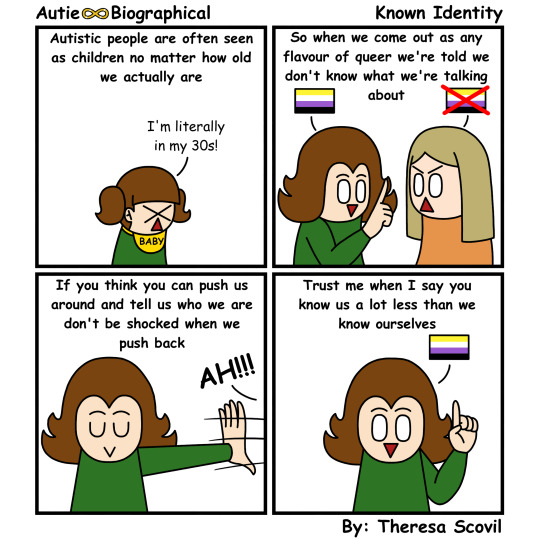
The idea that autistic people are child-minded is harmful to all autistics, but especially harmful to queer autistics.
Our very identities are denied and ignored for no other reason than other people see us as unable to think for ourselves.
#autiebiographical#autie-biographical#actually autistic#pride#pride month#nonbinary#non binary#autistic#autism#web comic#comic strip#comic
1K notes
·
View notes
Text
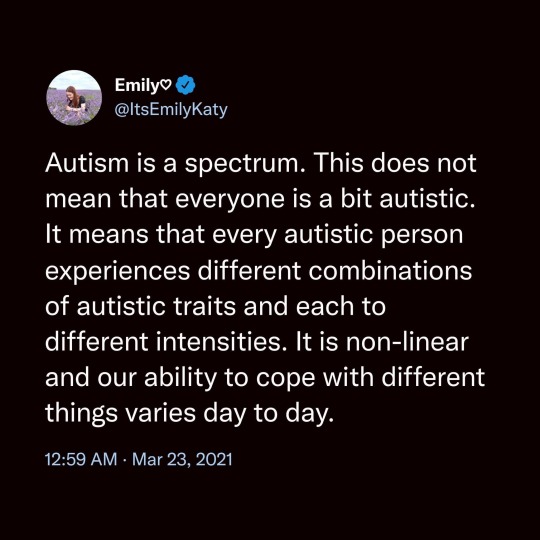
I wish more people understood this. Autism affects everyone differently. And this means every single individual.
I CAN Network Ltd
#autism#actually autistic#autism is a spectrum#no one is “a little autistic”#every autistic person is different#and experience the world in their own ways#I wish more understood this#neurodivergence#neurodiversity#actually neurodivergent#feel free to share/reblog#I CAN Network Ltd (Facebook)
518 notes
·
View notes
Text
shoutout to autistic people who have memory issues and can't remember many things about your special interests. you don't need to be able to remember things for the interests to be valid or important to you! if you enjoy them that's what matters
#its me im autistic people#i feel shame about this often so im making a positivity post#autism#actuallyautistic#actually autistic#autistic positivity#autistic adult#autistic things#max yaks
327 notes
·
View notes
Text
"oh you're austistic? what's your special interest?"
being a girl. estrogen. blåhaj.
#196#trans#transgender#lgbtq#lgbtqia#autism#neurodivergent#transfem#estrogenposting#blahaj#ikea shark#yes i am autistic
219 notes
·
View notes
Text
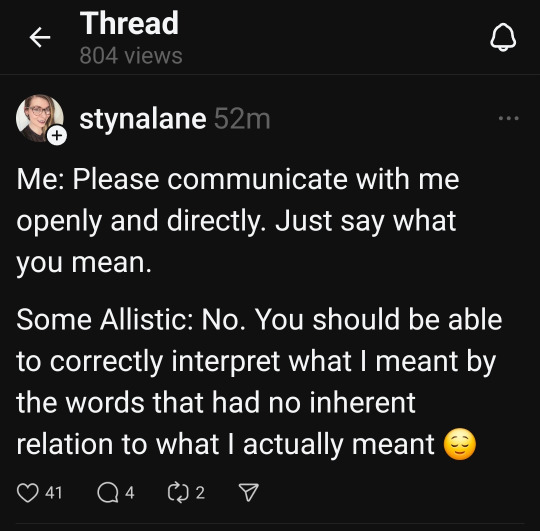
#actually autistic#autism#autism spectrum disorder#autistic#aspergers#autistic problems#autistic spectrum#autistic things#autistic adult#neurodivergent
246 notes
·
View notes
Text

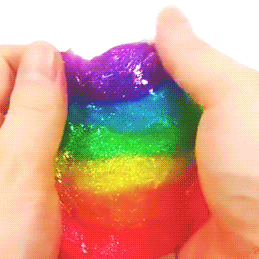

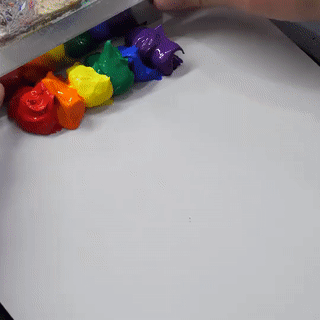

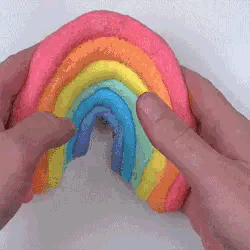



Happy Pride Month!
🏳️🌈|🌈|🏳️🌈
🏳️🌈|🌈|🏳️🌈
🏳️🌈|🌈|🏳️🌈
#pride#pride month#pride stim#pride 2024#pride stimboard#pride moodboard#stimming#stimboard#stim board#autism#sensory#actually autistic#sensory board#autistic#stims#stim#stimmy#rainbow stim#rainbow stims#food stim#sweets stim#glitter stim#slime stim#visual stims
171 notes
·
View notes
Text
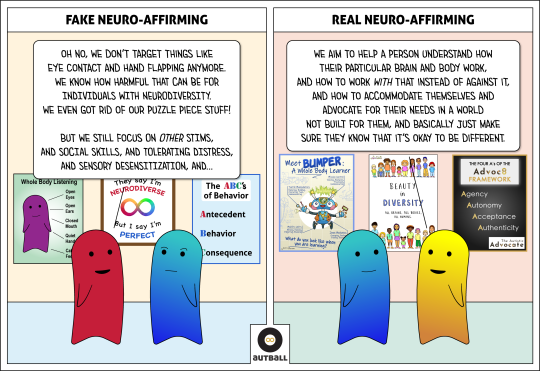
Part 1 of a 5 part series about the ways harmful practices are being made to sound more appealing through the co-opting of language and how to spot the differences between helpful and harmful approaches.
The language of the Neurodiversity Paradigm is soooo hot right now. Everyone from ABA centers to social media creators are adopting it to sound like they’re safer and more knowledgeable than they are.
But you can’t just pop some neuro-word in place of “autism” and stop picking on a couple of Autistic traits and call yourself “Neuro-affirming.” That’s the low-hanging fruit of #neurodiversitylite.
REAL Neuro-affirming practice comes from a complete shift in mindset, unlearning all the harmful things you once thought were true, and learning about all the things you never even knew you didn’t know. It’s also an ongoing process, not just something you can learn from reading an article or taking a single training.
ABA practitioners are probably the worst offenders right now, mainly because they know they need to rebrand as more and more people learn about what ABA really does to people, but also because their practices in particular are THE furthest away from being Neuro-affirming compared to any other discipline.
They are not the only ones, though, so be wary of #neurodiversitylite in ANY resource aimed at autistic people that appears to be saying all the right things, including: OT, speech, play/talk therapy, early intervention, education, your favorite parenting expert or social media personality who just discovered the world of Neurodiversity, etc.
Look beyond someone’s use of the “right” words or symbols. Do they talk about teaching people to fit into the normative world, or how to more safely and authentically navigate a world not made for them? Do they talk about making the person easier to deal with, or making life easier for the person? Do they concentrate on external behaviors, or are they more concerned with internal experiences? Does most of what they know come from people who studied autistic people from the outside looking in, or from actual autistic people who can speak from lived experience? And are they even using the words right??
The good news is that there are SO MANY resources out there BY autistic and otherwise Neurodivergent people for anyone who wants to learn how to make their practice *actually* more Neuro-affirming. SO MANY!! Three such resources are featured in the second panel from Autism Level UP, Neurowild, and Kieran Rose-The Autistic Advocate. (Big thanks to them for letting me include their work in the cartoon!)
EXPLANATION OF WHAT’S WRONG IN THE “FAKE” PANEL:
- The phrase “individuals with neurodiversity” misuses the word “neurodiversity” and utilizes person first language. The Neuro-affirming phrase would be “neurodivergent people,” or “autistic people” if they specifically meant autistic people.
- Getting rid of puzzle piece stuff is merely a surface level first step, not an end point.
- Not forcing eye contact and allowing hand-flapping are also only surface level first steps. The fact that they still target other stims means they do not understand the importance or functions of stimming, making them incapable of being Neuro-affirming.
- Social skills training aimed at ND people usually centers NT social skills as the “right way” and frames ND social skills as the “wrong way,” making them shame inducing and not at all affirming.
- “Tolerating distress” most often means “suppressing distress.” Neuro-affirming practice would concentrate on identifying and avoiding triggers, helping the person stay regulated, and teaching the person how to accommodate and advocate for their needs so that they are not distressed in the first place.
- “Sensory desensitization” is not a thing that can be done to someone without harm. It is usually done with exposure therapy, which should not be done TO someone who cannot consent. It is also inappropriate for sensory issues, which tells us they don’t understand sensory processing differences at all.
- The posters: Whole Body Listening is based on neuronormative expectations; “They say I’m neurodiverse” is incorrect usage of the word “neurodiverse” (it should be “neurodivergent”), and “but I say I’m perfect” insinuates that being “neurodiverse” is a bad thing, while the use of the rainbow infinity symbol with such a non-affirming message adds to the dissonance; the ABC’s of Behavior is an indicator that ABA/behaviorism will be used, which is the opposite of Neuro-affirming practice.
EXPLANATION OF WHAT’S RIGHT IN THE “REAL” PANEL:
- The person accurately explains what Neuro-affirming practice looks like, without needing to use (or misuse) any Neurodiversity “buzzwords.”
- Bumper, A Whole Body Learner, is a resource created by Autism Level UP that encourages people to discover what it looks like for them to be ready to learn, acknowledging that there is no one right way to appear attentive.
- The poster by Neurowild indicates that they value difference and neurodiversity and that they know there is no one right way of being.
- They use the Advoc8 Framework, a resource created by Kieran Rose, The Autistic Advocate. Using this framework means they want to help the people they work with achieve Agency, Autonomy, (Self) Acceptance, and Authenticity.
179 notes
·
View notes
Text
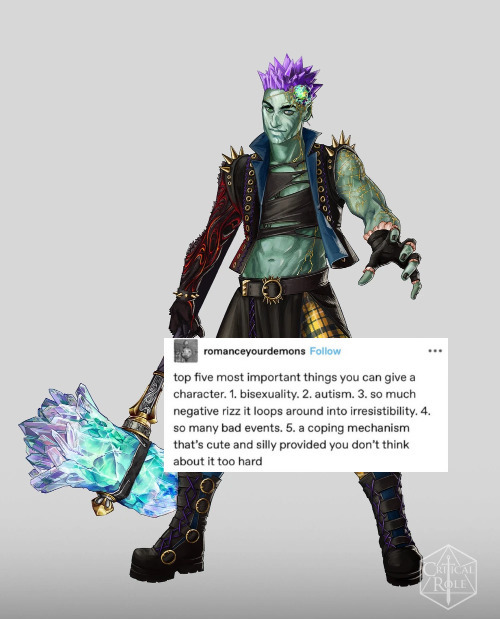
#i was morally obligated to do this for ashton#critical role#critrole#critrole memes#bells hells#bell's hells#ashton greymoore#text post meme#fictional characters#bisexual#bisexuality#autism#negative rizz#bad events#coping mechanism#cr memes#cr shitpost#courtesy of me#cr campaign three#crit role#critrole meme#cr3#cr c3
187 notes
·
View notes
Text

i saw someone else do this with handsome jack and i copied them sorry, other jack doodle and rhys version sketches below :3



#handsome jack#borderlands#autism#borderlands 2#tftbl#tales from the borderlands#borderlands 3#my art#rhys strongfork#handsome jackpot
92 notes
·
View notes
Text
these are my three moods and they go in a loop constantly
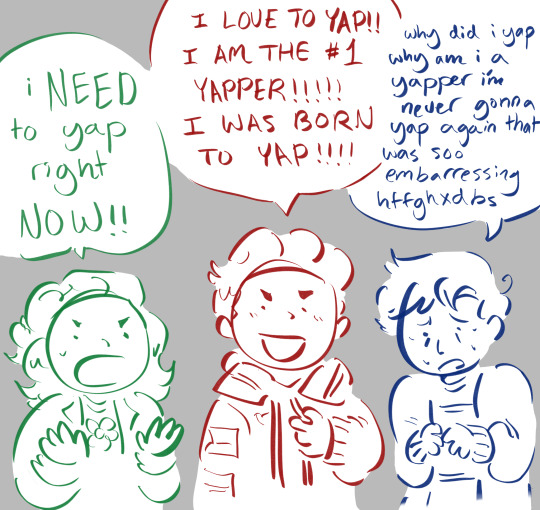
#bmc#be more chill#jeremy heere#michael mell#christine canigula#ricky’s giddy drawings#doodle#yapping#yapfest#only in essence though because im not actually having on in this post 😞🤷♂️#silly#ummm#neurodivergent#autism#adhd#or something#im not diagnosed yet guys pray for me 😭🙏🙏
138 notes
·
View notes
Text
I do find it rather irritating that I regularly see allistic disability advocates online claiming that autism is always accommodated when every single "autism accommodation" I've personally encountered has just been *leave*
#actuallyautistic#actually autistic#autism#autistic#autism spectrum disorder#'we offer accommodations for autism such as: if you get overwhelmed you can leave whenever you need to 😊'#like#wow thanks i feel so *included* now /sarcasm
113 notes
·
View notes
Text
Autistic and Can’t Regulate the Temperature?
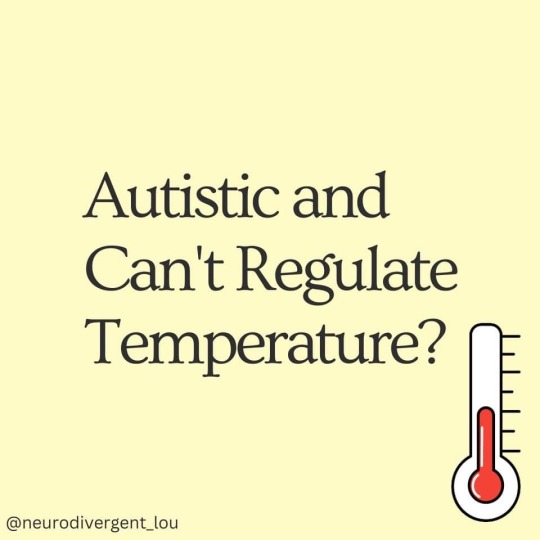

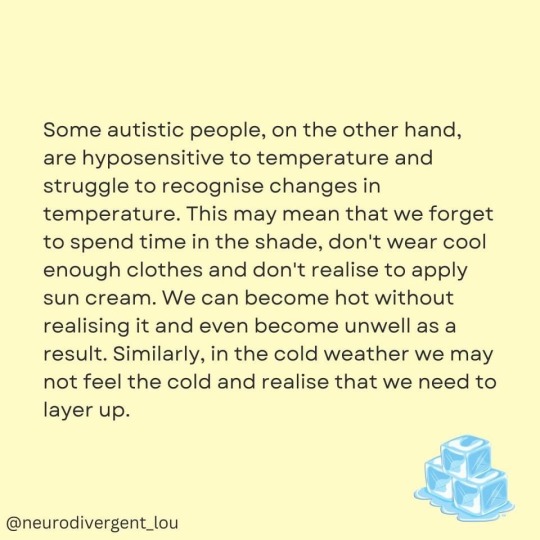
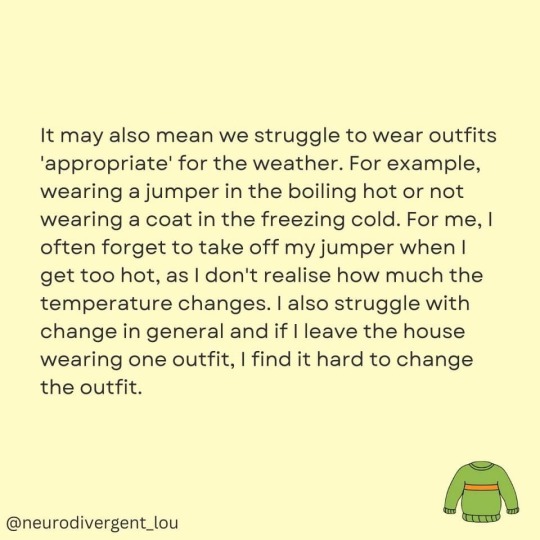
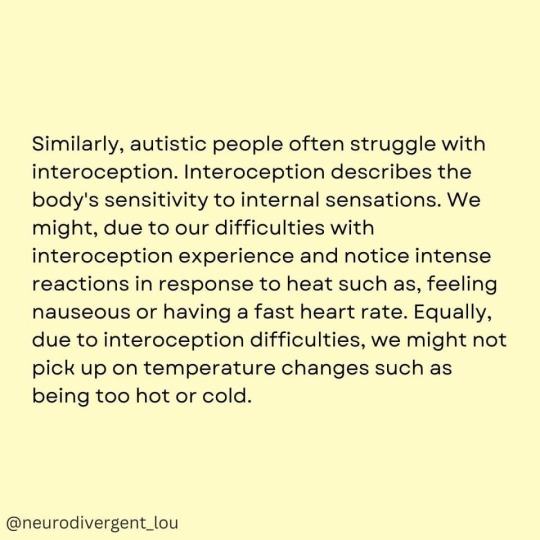

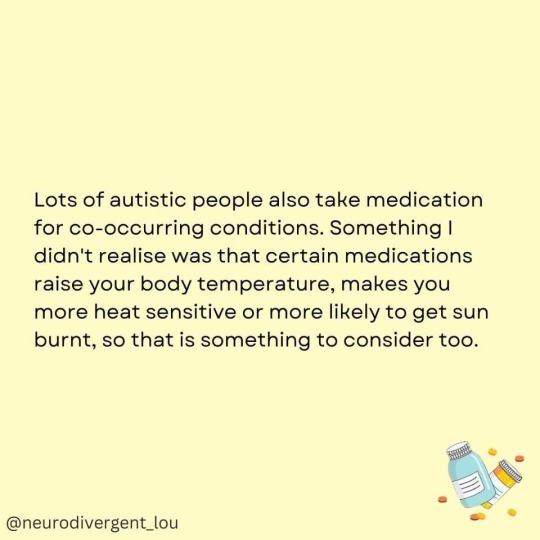
Neurodivergent_lou
I thought this would be helpful for neurodivergents in Summer/Winter
#autism#actually autistic#autism and temperature regulation#hypersensitive/hyposensitive to temperature#I personally hate hot weather and I’d rather it be cold#what are your experiences with temperature?#neurodivergence#neurodiversity#actually neurodivergent#neurodivergent_lou (Facebook)
249 notes
·
View notes
Text
Feelin kinda autistic
Might rewatch hannibal
92 notes
·
View notes
Text
I am an A-class man
(Aromantic asexual autistic ADHD)
#aromantic#asexual#aroace#autism#actually autistic#adhd#actually adhd#this bitch finally got formal diagnosis#and is now also medicated#god threw every possible hurdle at me because otherwise i would have ruled the world by now
81 notes
·
View notes
Text


#ghs#gregory horror show#hell's chef#hell's chef ghs#Judgement boy#autism#cw: blood#cw: knife#tw: blood#tw: knife
76 notes
·
View notes
Text
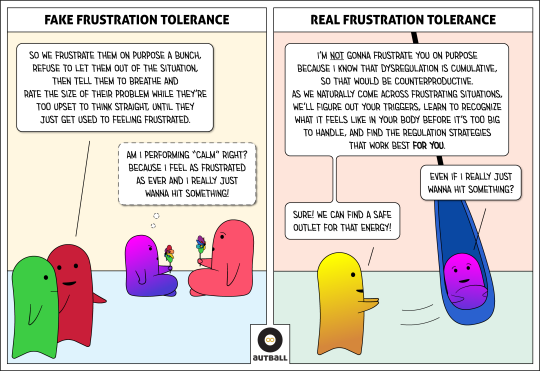
A kind of subset of self-regulation skills (which I posted about yesterday) is frustration tolerance. It’s another popular recommendation for ND kids that *sounds* like a very worthwhile goal. If your kid is frustrated and acting out all the time, getting them to tolerate frustration better sure seems like it would solve a lot of problems.
Here’s the thing about that: you don’t get better at feeling frustrated by spending more time being frustrated. You just get more fucking frustrated. And just like with the attempts to “teach” self-regulation skills, all you’re gonna get is someone who gets better at *pretending* not to be frustrated OR someone who lashes out more because you won’t stop frustrating the shit out of them.
Being “easily frustrated” is a problem, yes. But what you’re really looking for isn’t frustration tolerance, it’s frustration *management.* And that is a team effort, not solely the responsibility of the person who’s always feeling frustrated.
#autism#autistic#actually autistic#adhd#audhd#neurodivergent#pathological demand avoidance#frustration
135 notes
·
View notes